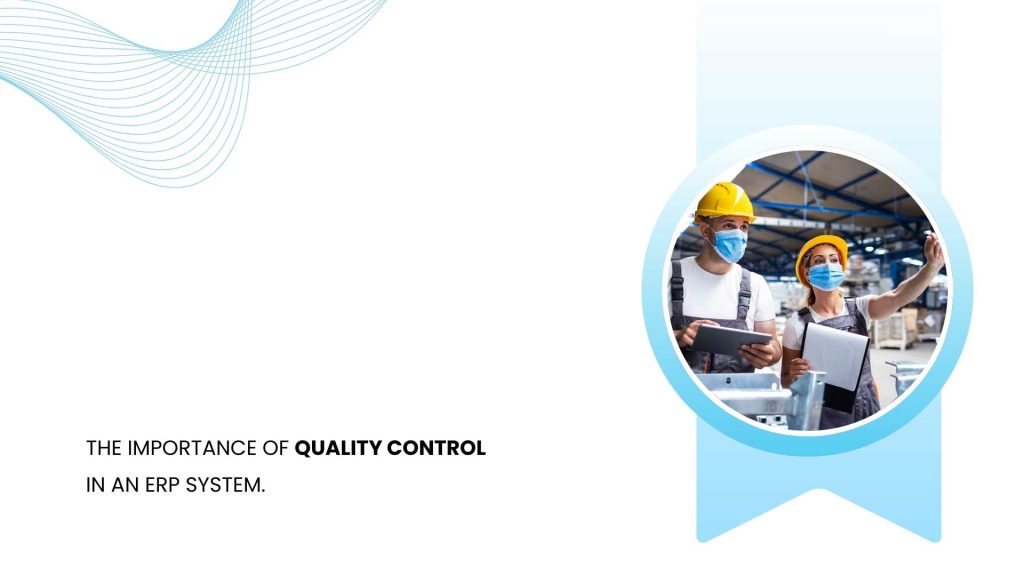In the dynamic landscape of modern business, ERP systems have become indispensable tools for streamlining operations, enhancing productivity, and fostering growth. Among the various components that contribute to the success of an ERP system, quality management emerges as a linchpin, playing a pivotal role in ensuring compliance, customer satisfaction, cost savings, and more. We will explore the multifaceted importance of quality control within your ERP system and how it positively impacts different aspects of your business.
Compliance and Regulatory Requirements
In today’s highly regulated business environment, compliance with industry standards and government regulations is non-negotiable. Quality control mechanisms integrated into your ERP system act as a safeguard, ensuring that your business operations adhere to the necessary guidelines.
Automating compliance checks helps the system avoid penalties, legal issues, and reputational damage, fostering a secure and compliant working environment.
Customer Satisfaction and Retention
Quality control extends beyond meeting regulatory standards and directly influences the quality of the products or services you deliver to your customers. An ERP system with robust quality control processes ensures product or service quality consistency, leading to increased customer satisfaction.
Satisfied customers are likelier to become loyal patrons and serve as brand advocates, contributing to long-term business success.
Waste Reduction and Cost Savings
Efficient quality control minimizes the chances of defects or errors in production, reducing waste and operational costs. By identifying and rectifying issues early in the production cycle,
ERP system helps optimize resource utilization and ensures that only high-quality products reach the market. It, in turn, translates into significant cost savings and improved profitability for your business.
Improved Operational Efficiency
Quality control processes integrated into your ERP system streamline and standardize operational procedures. The systematic quality control approach ensures that workflows are optimized and potential bottlenecks are identified and addressed promptly, leading to smoother and more agile operations.
Supply Chain Confidence
In an interconnected global economy, supply chain resilience is crucial. Quality management within your ERP system facilitates traceability and visibility across the supply chain, allowing you to identify potential risks and address them proactively. It builds trust among suppliers, partners, and customers, fostering stronger relationships and ensuring the reliability of your supply chain.
Enhanced Employee Morale
An ERP system with robust quality control mechanisms empowers employees by providing them with the tools and processes necessary to produce high-quality outcomes.
Knowing their work contributes to delivering superior products or services boosts employee morale and engagement. A positive work environment driven by a commitment to quality can lead to higher job satisfaction and increased productivity.
Competitive Advantage
In a competitive business landscape, differentiation is key. An ERP system with a strong emphasis on quality control ensures that your products or services meet or exceed industry standards and positions your business as a quality-driven entity.
This differentiation can be a powerful competitive advantage, attracting discerning customers who prioritize reliability and consistency.
Conclusion
Integrating Acumatica’s Quality Management System (QMS) is a transformative opportunity for businesses, seeking to elevate their operational efficiency and overall performance.
By seamlessly incorporating QMS into the core functionalities of Acumatica’s robust ERP platform, organizations can establish a unified and streamlined approach to quality control.
Moreover, the collaborative nature of the platform fosters cross-functional communication, fostering a culture of continuous improvement. Implementing Acumatica’s integrated QMS optimizes quality control and increases customer satisfaction, regulatory compliance, and long-term business success.

Vijay comes with a vast experience in ERP and enterprise solutions space with about 20 years of experience in various packaged application like Acumatica, SAP, Orion, Salesforce.com, SugarCRM and, SalesLogix.

